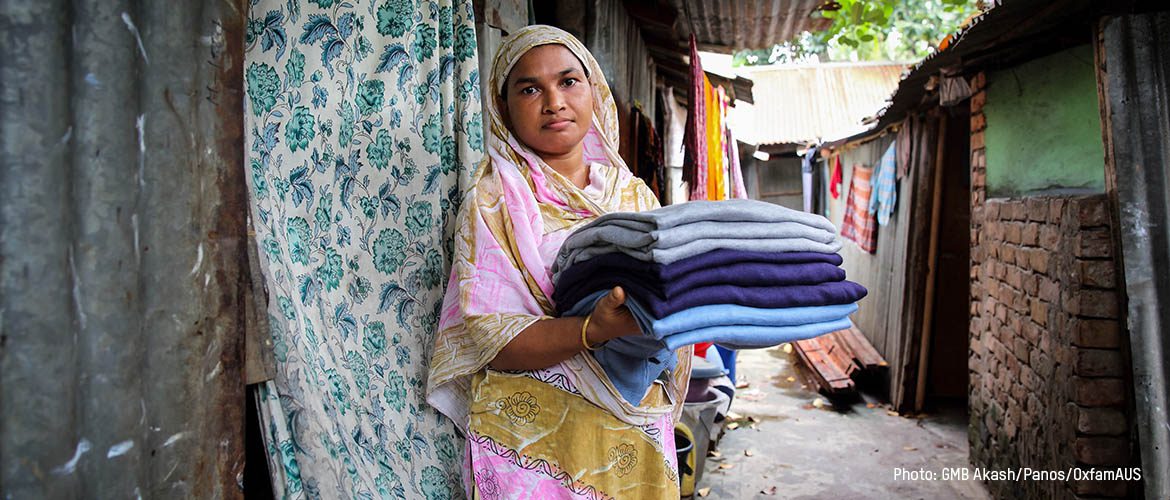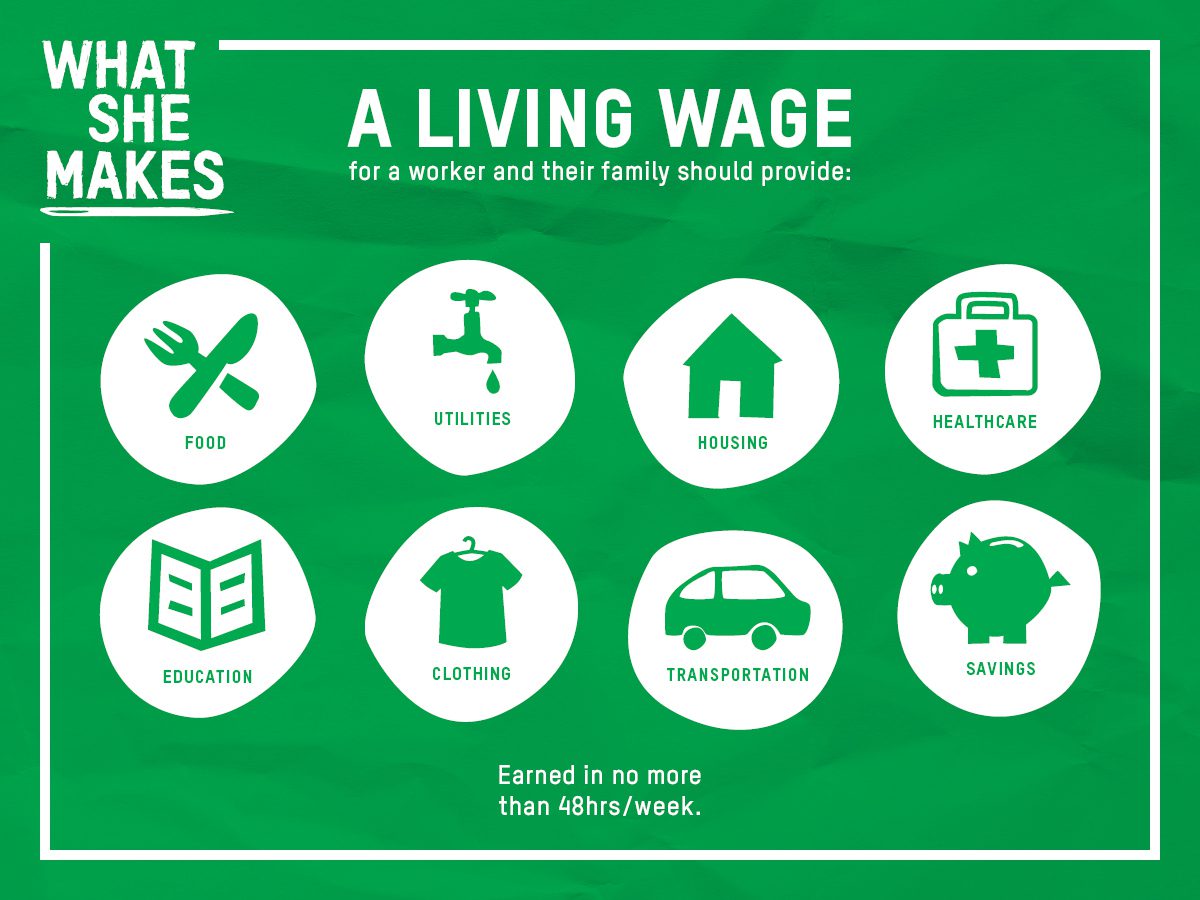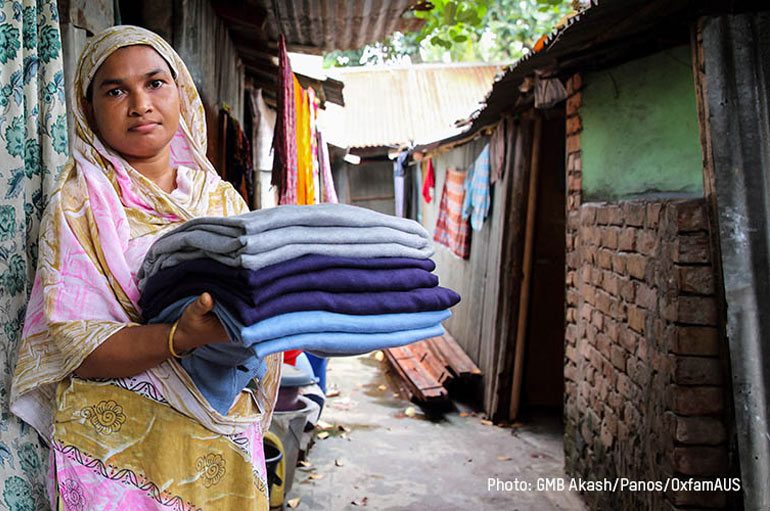
Together, we’re tackling poverty in the fashion industry, demanding big clothing brands pay a living wage to the women who make our clothes.
Women like Anju, who works in a factory in Dhaka, Bangladesh. She’s paid just 37 cents an hour. No matter how hard Anju works, sewing sweaters sold in Australian shops, her meagre pay is not enough to cover even the basics of life – food and shelter. She lives in a crowded slum, in a concrete compound alongside seven other families. There’s very limited access to water.
Big brands are keeping Anju, and women like her, living in poverty. They can and must pay the women who make our clothes a living wage. A living wage is a wage that covers at least essential needs – food, housing, healthcare, utilities, clothing, transport, education, with some money for emergencies.

Today, Oxfam reveals new research – the first of its kind in Australia – showing on average, just 4% of the price of a piece of clothing sold in Australia goes toward workers’ wages in garment factories. And, it would cost just 1% of the retail price – that’s 10 cents for a $10 T-shirt – to ensure living wages are paid to the women who make our clothes.
Poverty wages are holding back the women who make our clothes. This rigged system’s gross exploitation of workers like Anju must stop. We all buy clothes and brands listen to us. We know this because we’ve won before on garment factory safety and supply chain transparency. Join us to demand big brands commit to paying living wages.
Brands care about what we think. Sign the What She Makes pledge to stand together with the women who make our clothes.
We’re all cut from the same cloth, we are people who care about how our clothes are made. We demand to know What She Makes.

Take action
Let big brands know loud and clear that the women working in their factories, making my clothes must be paid a living wage.